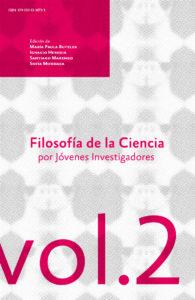Philosophy of Scienceby Young Researchers: Vol II
Keywords:
philosophy of science, young researchersSynopsis
The second volume of Philosophy of Science by Young Researchers brings together a selection of articles and comments presented at the 2nd Conference of Young Researchers in Philosophy of Science, held virtually on October 27, 28, and 29, 2020, and organized by the group "Modeling, Simulating, and Experimenting: an epistemological analysis from scientific practices" (SECyT) based at the María Saleme de Burnichon Research Center (FFyH, UNC). Following the first volume of this book, published in the CIFFyH Collections in August 2020, this second edition arrives, which, like the previous one, recovers articles and comments resulting from the work of young researchers from CIFFyH and other research centers, which reflect the political-academic purpose of the Conference: to promote, among and for young people, local philosophical production about discussions situated in the vast field of the philosophy of science and related disciplines. In addition, these productions aim to strengthen the construction of knowledge in this field, broadening the horizons of the issues and research topics addressed in the volume.
Chapters
-
Foreword
-
I. Science, values, and society
-
Interobjectivity
-
The inhumanity of Jupiter. Subjectivity versus anthropocentrism
-
The paths of knowledge. An inquiry into the limits of objectivity in science
-
The multiple meanings of subjective
-
Science, technology, and values. A Deweyan perspective
-
How can we open up the social sciences? Historical-structural heterogeneity as a possible route to epistemological openness for thinking about the relevance of “the other”
-
On Quijano and the Social Sciences. Dialogues and interstices from Latin America
-
Thinking about politics in the heat of the Anthropocene
-
A cosmopolitical reflection on the hegemonic conception of “politics”
-
Technical/scientific knowledge of environmental issues. The case of bioethanol production at the Porta Hnos. plant.
-
Publish, publish, something will stick.
-
The many faces of metaphors
-
The questions that never leave us
-
When ideologies interfere with science
-
II. Practical knowledge
-
Human expertise and epistemic opacity in contexts of scientific practices
-
The expert as decision maker
-
Practical knowledge and physical education. A defense of the practical point of view
-
Body knowledge and dance
-
The phenomenon of know-how. Two conflicting traditions
-
III. Philosophy of the particular sciences
-
Free energy and Markov blankets. An approach to new proposals in cognitive science from the perspective of radical enactivism
-
Comment
-
Epistemological reflections on the concept of Umwelt in relation to a situated study of an anthropological nature
-
The concept of mole in chemistry education. A bridge between the macroscopic and molecular domains
-
Analyzing the lung-on-a-chip. Simulation and technical function
-
Is the lung-on-a-chip a human lung?
-
What is a top-down design in programming?
-
Why is methodology (in software) important for philosophy (of science)?
-
IV. Philosophy of Mathematics
-
Ancient Egyptian mathematics from a philosophical perspective. Some discussions about the ubiquity of its consideration as “applied mathematics.”
-
Mathematicians' philosophy: dissolving the “applied mathematics - pure mathematics” dichotomy
-
The naturalness of natural numbers
-
Wittgenstein, Frege, and Russell. Considerations on the philosophy of mathematics in the Tractatus Logico-Philosophicus
-
Comment
-
V. Theory of knowledge
-
Davidson. Coherentism, externalism, and skepticism
-
Davidson confronts the skeptic
-
A critique of the role of experience as the court of empirical thought in McDowell
-
Some methodological observations regarding the debate between conceptual and non-conceptual content
-
Commentary on "What cannot be spoken of according to Frege and Wittgenstein"
-
VI. Gender and Feminism
-
Assumptions and contradictions of the post-money episteme. A critique of the notion of identity from Paul B. Preciado
-
Dictionary: From the Latin Dictionarium: 1. m. Book containing, in alphabetical order, definitions of words from an androcentric perspective.
-
Language, experience, and politics. Transfeminist operations on language

Downloads
Published
Series
Categories
License

This work is licensed under a Creative Commons Attribution-NonCommercial-ShareAlike 4.0 International License.


